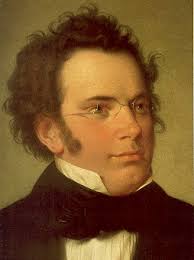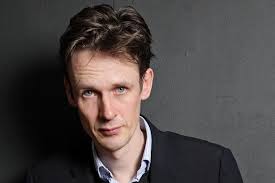
Wagner: Die Meistersinger von Nurnberg
Vienna State Opera, Daniele Gatti
EUROARTS 2072688
Die Meistersinger lends itself to traditional staging and attempts to update or challenge the audience can all too easily come to grief. Thankfully this staging by Stephan Herheim for the Salzburg Festival in 2013 treads a fine line between the two. It may all be a dream within the minds of Sachs and Beckmesser, but for most of the time the cheerful indulgence allows the music to shine through. The toy-town approach to the settings works remarkably well and the introduction of classical fairy tale figures does not feel out of place. It is well sung and acted by a generally young cast. Markus Werba is an unusually young Beckmesser, though his priggishness is closer to the older masters than to Robert Sacca’s aristocratic Walter. Michael Volle’s splendid Sachs is on stage virtually throughout and commands attention both vocally and histrionically. Daniele Gatti charms wonders from the Vienna Philharmonic Orchestra to produced one of the best sounding Wagner recordings for some time.
 Janacek: Orchestral Works vol 1
Janacek: Orchestral Works vol 1
Bergen Philharmonic Orchestra, Edward Gardner
CHANDOS CHSA 5142 64’05”
The Sinfonietta and suite from The Cunning Little Vixen will be familiar and are here well performed and convincing. The rarity is Capriccio, for piano (left hand) and brass ensemble, written in 1926. There is a bravura approach here, an overcoming of adversity which is felt throughout, even when the score is at its most whimsical. If the rest of the series introduces us to rarities of this quality it will be eagerly anticipated.

Elgar: Symphony No 1, Cockaigne Overture
Royal Stockholm Philharmonic Orchestra, Sakari Oramo
BIS 1939 67’17”
While working with the CBSO, Sakari Oramo gave some of the finest performances of Elgar I have ever experienced. It is a pity they were not recorded but he brings the same insight and sensitivity to this recording with the Royal Stockholm Philharmonic Orchestra. There may be many other versions available but this must now rank among the best.

Elgar: The Dream of Gerontius; Sea Pictures
Sarah Connolly, Stuart Skelton, David Soar, BBC Symphony Orchestra & Chorus, Sir Andrew Davis
CHANDOS CHSA 5140 58’33”; 66’14”
I was fortunate enough to be at the Barbican last year when these forces performed Gerontius and it was a wonderful and spiritually fulfilling evening. If the recording does not have quite the frisson of the live event (and one might query why it was necessary to record in the studio when many live performances are successfully launched these days) it certainly has all the strengths we have come to expect from Sir Andrew Davis. Stuart Skelton is outstanding as Gerontius, heroic at the top of the voice, and yet genuinely pained, almost afraid, in the reflective passages.
Sarah Connolly is a familiar strength as the Angel and we have the added value of her recording of the Sea Pictures which she sang at the Proms this year. A very welcome recording.

Franz Lehar: Wo die Lerche singt
Lehar Festival Bad Ischl, Marius Burkett
CPO 777816-2 129’52”
It would be nice to think of this as a lost masterpiece but, in reality, it isn’t. The performance may have been effective at the Bad Ischl Festival but in the cool light of day the voices are simply not opulent enough to carry the often thin material. A few tunes are interesting and there is possibly enough material for a suite, but there is little to recommend a more costly revival.

Tchaikovsky: Cherevichki
Bolshoi Theatre, A Melik-Pashayev
MELODIA MEL CD 1002129 74’46”;72’42”
This recording dates from 1948 and has been lovingly re-mastered. Though the work is difficult to bring off on stage – Garsington Opera made a valiant attempt recently – the music alone makes it worth listening to and as such this is a useful reissue.

Shostakovich: Violin Concertos 1 & 2
Christian Tetzlaff, Helsinki Philharmonic Orchestra, John Storgards
ONDINE ODE 1239-2 68’09”
Bringing the two concerti together helps to highlight the contrast between them, not only in the orchestration but in the solo part. Christian Tetzlaff brings a stridency and tension to his playing which is particularly effective in the later concerto but allows a more generous approach to the first.
The Helsinki Philharmonic Orchestra under John Storgards seem to have an innate understanding of the scores.

Debussy: La mer (arr Beamish); Beamish: The Seafarer
Trio Apaches, Sir Willard White
ORCHID CLASSICS ORC 100043
The thought of a chamber version of Debussy’s orchestral masterpiece La mer is, to say the least, challenging. The fact that Sally Beamish easily convinces us that the work could have been in this form before being transferred to orchestra is a mark of her superb expertise as a composer. Time and again listening to the arrangement it seems that nothing is lost in the transfer, though we know of course that it has been. The balance, sensitivity to dynamic and tone, are so well caught that the whole seems as inevitable as the original.
That her own setting of The Seafarer is not as successful is a pity. Willard White reads the poem against a quietly intense musical background. Though individual moments work well, the whole seems overlong and lacking in contrast. But the disc is more than worth it for the Debussy.
 London Coliseum, 29 October 2014
London Coliseum, 29 October 2014


















